450 Search Results for VISUAL SUPPORTS
October 5, 2015
by Carole Zangari -
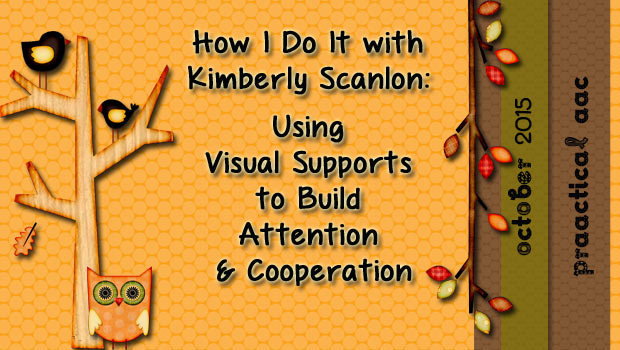
Having solid goals and fun activities is one thing, but being able to connect the two and teach communication and language takes skill. We have the best outcomes when the interventionist knows a variety of strategies that can support the learning outcomes. We’ve written about implementing countdown boards and other visual supports to build attention in the past, and have been gratified to hear from many of you who utilize those strategies. In today’s post, SLP Kimberly Scanlon, owner of Scanlon Speech Therapy, discusses how she implements this strategy and shares her own clever variation. You can download it at the end of the post. :::::::::::::::::::::::::::::::::::::::::::::::::::::::::::::::::: You plan the session. In fact, you over-plan and over prepare. You carefully select materials ensuring they are appropriate, engaging, and motivating for the client. Each activity will be short. Short is key as this student grows restless and losses interest rather quickly. You remove... [Read More...]
March 23, 2015
by Carole Zangari -
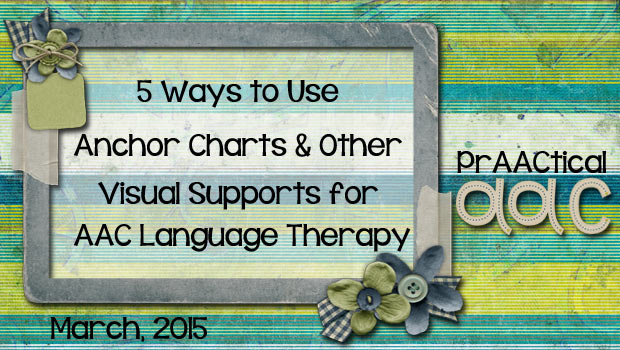
Anchor charts are a visual way to outline, describe, or illustrate a procedure, strategy, or concept. They are widely used visual supports in general education classrooms across the grade levels. In AAC therapy, anchor charts offer several benefits. First, making the anchor chart forces us to distill the main ideas in whatever it is we are teaching. What are the key aspects of what we are teaching? We have to answer that to create our anchor chart, and that gets us really thinking about the concept/process/strategy in great detail. Selecting the critical elements for our anchor chart helps us focus on the constructs that are most important to teach. Secondly, it helps us explain the concept/process/strategy in a more concise and articulate way. Putting things into writing forces us to clarify our explanations, and allows us to carefully consider what to say and how to say it. Yes, we sometimes... [Read More...]
December 11, 2013
by Carole Zangari -
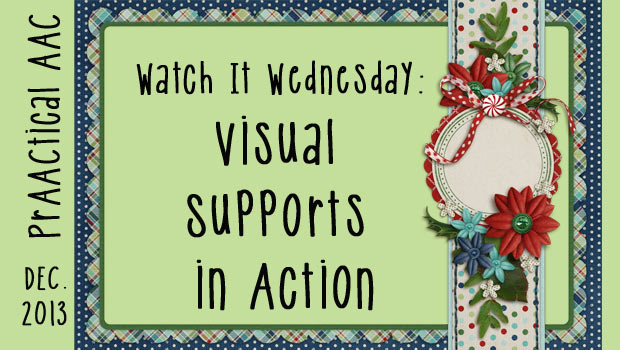
Visual supports are good teaching for ANY child, but particularly if there are issues with language processing. Check out this great example from The Teaching Channel. Direct Link: https://www.teachingchannel.org/videos/visual-cues-in-the-classroom
November 22, 2013
by Carole Zangari -
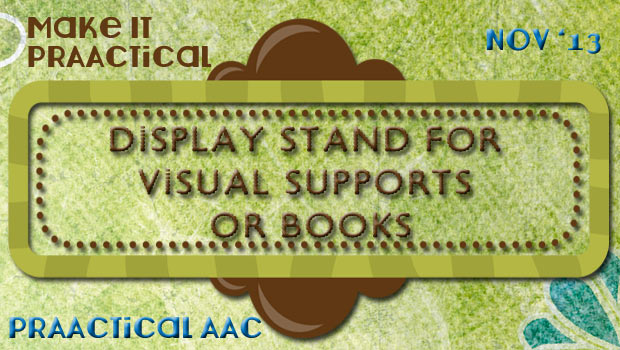
In an earlier post, we shared a wonderful video on making a portable stand for a communication book. Today, we look at a different approach to book stands, which would be great for the reading material or visual supports that the communicator needs to see. We love that it is lightweight, easy to transport and store, and inexpensive to make. Hats off to the wonderful team at AT in New Hampshire for this terrific video. The direct link is: https://www.youtube.com/watch?v=1EeX7bIKiEU.
November 17, 2013
by Carole Zangari -
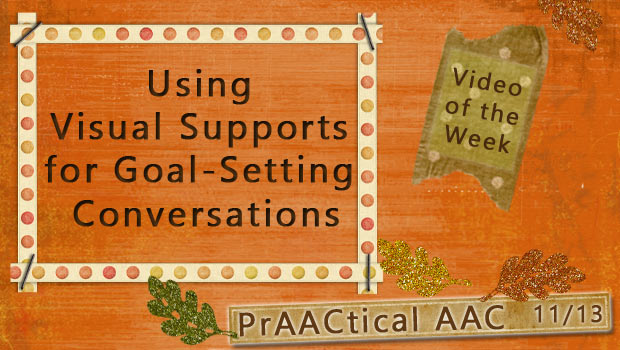
Empowering people with AAC needs to be actively involved in goal setting is something that most professionals would see as a priority. Where we get sometimes get stuck is on HOW to make that happen. In this week’s featured video, Dr. Joan Murphy demonstrates the use of Talking Mats in goal-setting conversations. You can learn more about that here. Direct link to video: https://www.youtube.com/watch?v=T-fFCtQ5sB
August 8, 2013
by Carole Zangari -
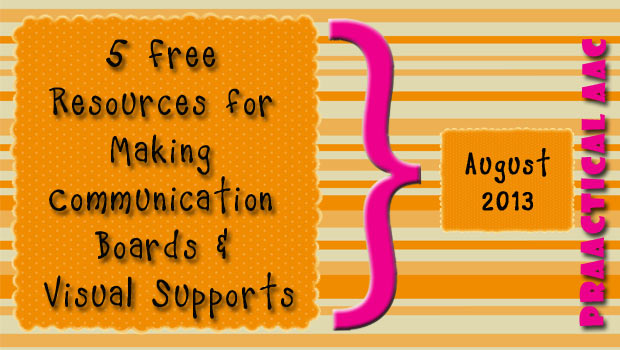
Because sometimes you need something quick, simple, and free. 1. Quick Pics from the Patrick Ecker AAC site 2. ConnectAbility’s Visual Engine 3. Picto4Me: An app for your computer that you can install to Chrome 4. PhotoSYMS program 5. Aragonese Portal of AAC: Over 14,500 symbols that you can download and use
August 4, 2013
by Robin Parker -
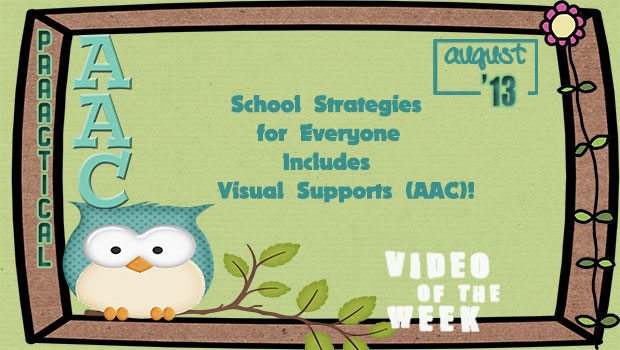
Great video for supporting students with autism in inclusive secondary settings. But, actually, these strategies can work for everyone. Most of them are just good teaching strategies. Can you count the visual strategies for understanding, for expression, for organization and behavior? Direct link to video: https://www.youtube.com/watch?v=veQKDDE9C_w” site=”youtube
July 6, 2013
by Carole Zangari -
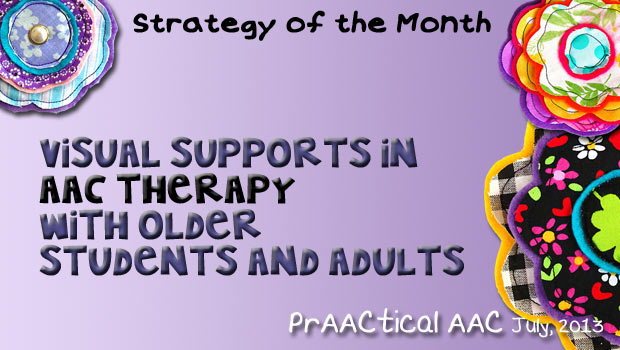
When learners are still struggling with communication in their teenage years and beyond, it means we have a lot of catching up to do. There are lots of implications for us as SLPs, of course, but the main one is this: Every interaction should have a purpose. As we head to the waiting room or classroom to see this student, we’re focused on how we can elicit practice on meaningful skills in the next few minutes. On a good day, we can use these few minutes before the session productively. Before we get to the therapy room we try to: use expectant pauses and graduated prompting to elicit a greeting at his/her highest level engage him/her in conversation to practice social exchanges provide opportunities for him/her to respond to a non-obligatory communicative context and facilitate a response make basic requests, like asking for help to open the door that we’ve... [Read More...]
April 19, 2013
by Carole Zangari -
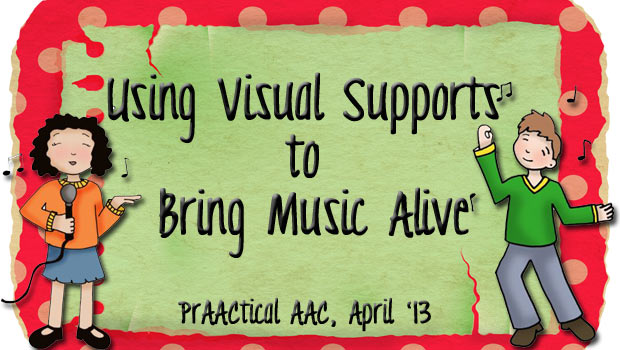
When I first met our guest blogger almost 20 years ago, she was using more visual supports in her music therapy sessions with kids who had ASD than most SLPs were using in their language therapy. Marlene Sotelo has worn many hats in her professional life, but her passion for helping people with ASD communicate more effectively seems to have permeated all of them. In this post, she discusses some of the ways she uses visual supports to help make music therapy effective. Music is a powerful force that transcends time, cultures, and languages. It can transport you to the past, and bring you hope and excitement for the future. In addition, music can be an effective tool in teaching children with varying abilities. The predictability, rhythmic patterns, and repetitive nature of the structure music lends itself to the development of language, cognitive skills, and motor skills, especially for individuals... [Read More...]
March 25, 2013
by Robin Parker -

Happy Passover & Easter to those who celebrate! There are some great free visual supports to help ALL children participate in the holiday routines. We are thankful to Gateways Access to Jewish Educationand Positively Autism– Daily Autism Freebie for making these readily available. Whether you use them for your students, clients, family, or guests, we hope everyone has a wonderful holiday and everyone is included. Passover The Seder Order, The Ten Plagues, Passover Social Stories, Passover Prayers, Passover Songs, Passover File Folder Activities Easter Going to Church on Easter Travis the Train Goes on an Easter Egg Hunt Decorating Easter Eggs Going on an Easter Egg Hunt Easter Vocabulary Easter Songs (scroll to the bottom of the page for the videos)









